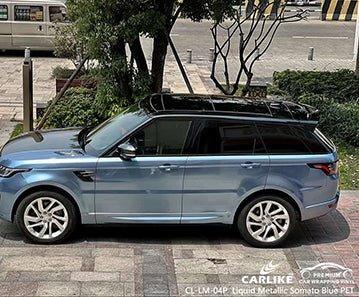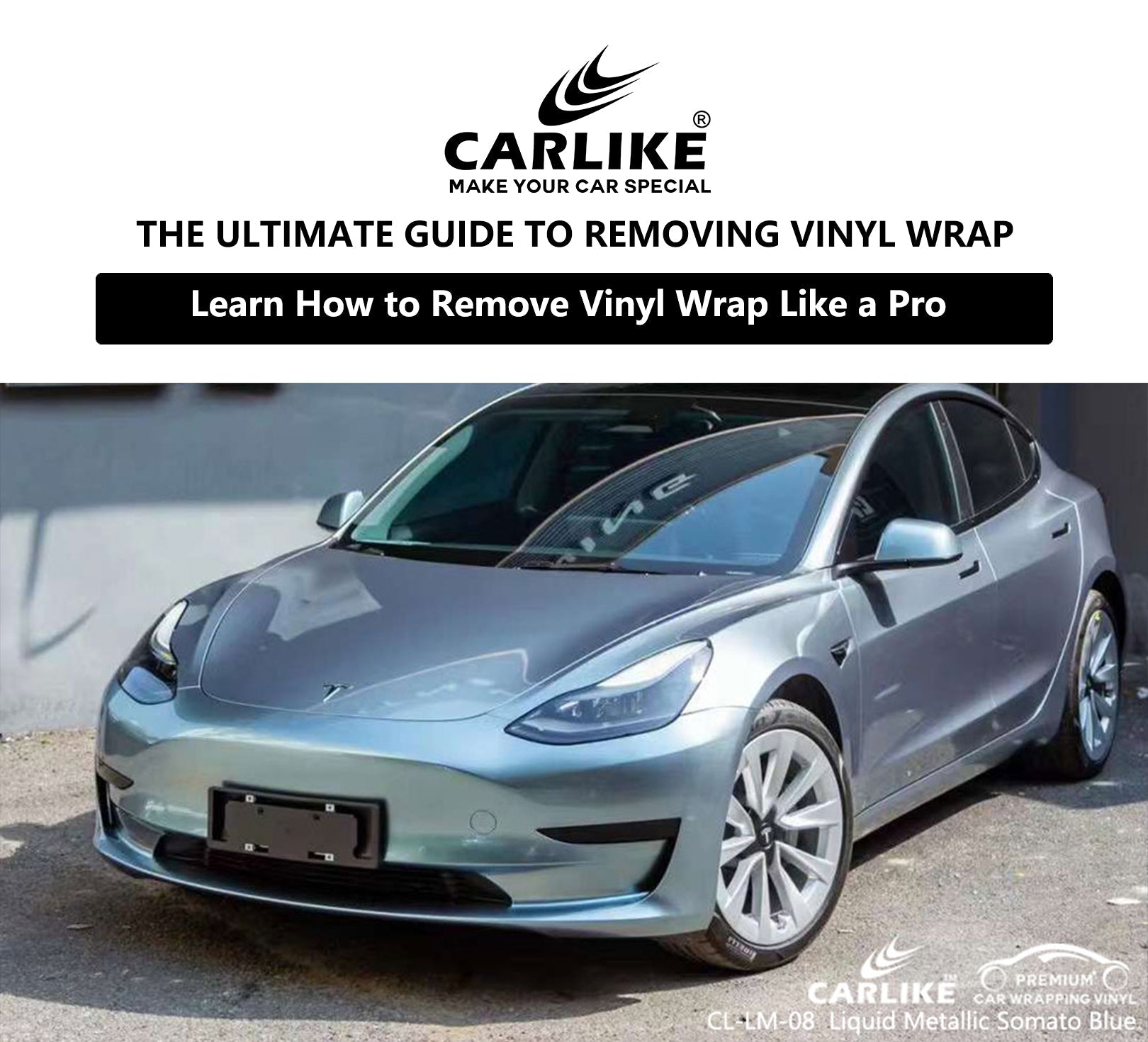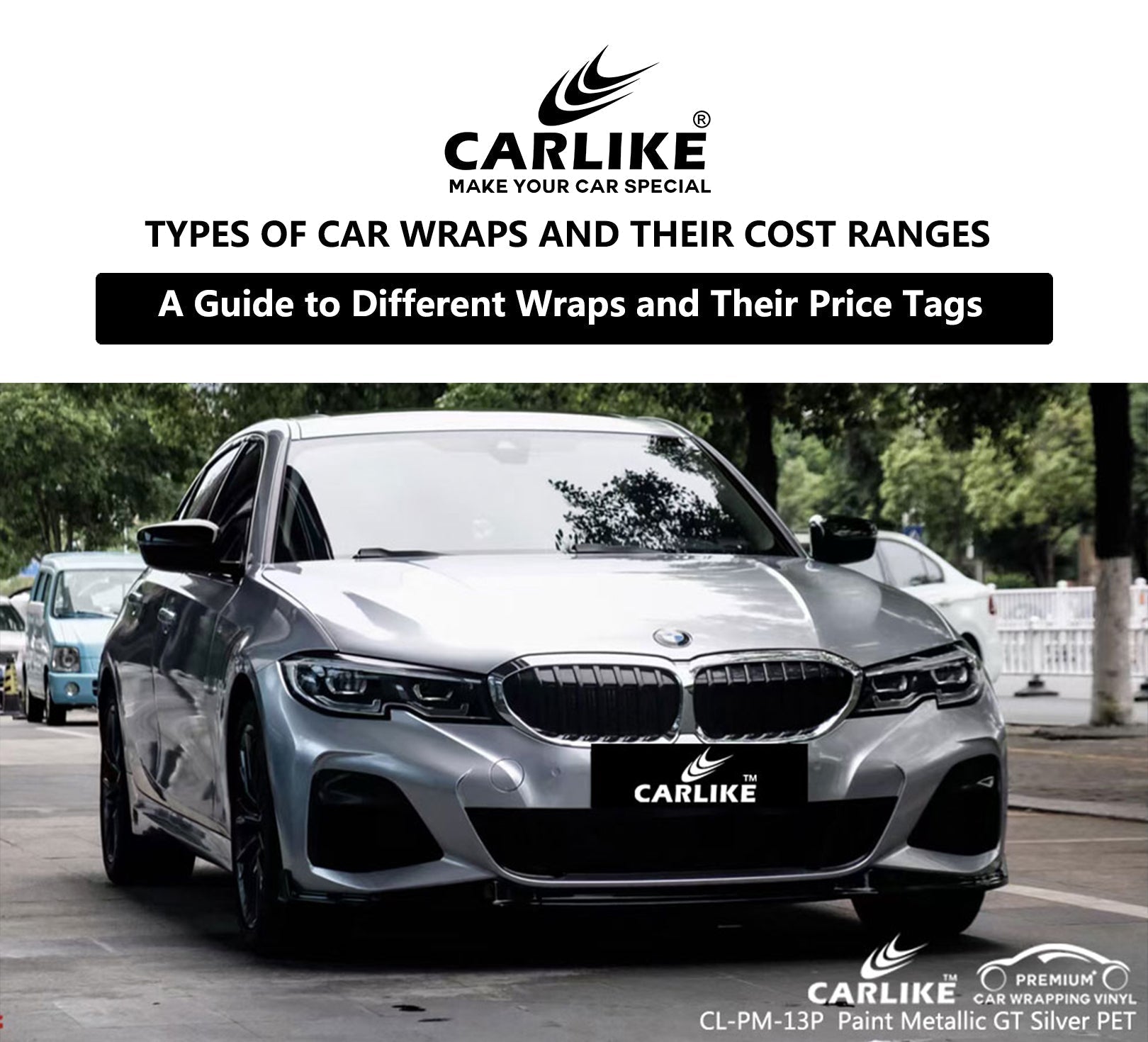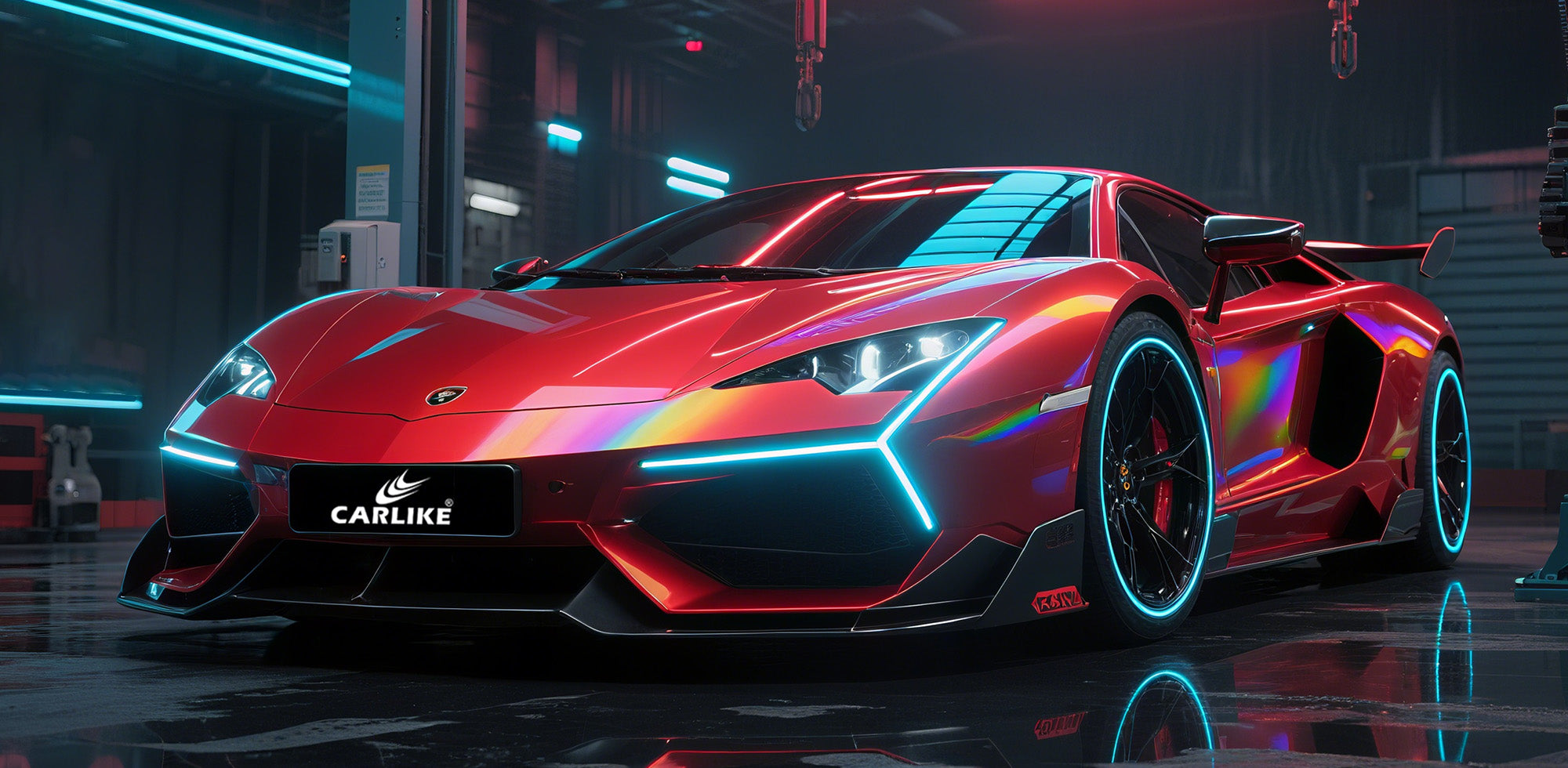Do you know what you should be careful between vinyl car wrap and cost?
1.Additional Service Charges
Apart from the cost of the vinyl wrap itself, there may be additional service charges such as surface preparation, removal of old wraps, installation services, etc.
1. Surface Preparation: Proper surface preparation is essential for ensuring the vinyl adheres correctly and achieves a smooth finish. This process may involve cleaning the surface, removing any wax or residue, and sometimes even sanding or priming rough areas. The time and materials required for surface preparation will add to the overall cost.
2. Removal of Old Wraps or Paint Correction: If there is an existing vinyl wrap or paint on the vehicle that needs to be removed before applying the new wrap, this can add to the labor costs. Additionally, if there are imperfections in the paint such as scratches or chips, paint correction may be necessary to ensure a flawless finish. Both removal and paint correction processes require time and specialized skills, contributing to the overall cost.
3. Installation Services: The installation of the vinyl wrap is a crucial step that requires precision and expertise. Professional installers have the necessary tools and knowledge to ensure the wrap is applied smoothly without wrinkles, bubbles, or creases. The complexity of the installation, such as the size and shape of the vehicle, intricate designs, or customizations, will impact the labor cost.
4. Customizations and Additional Services: Depending on the client's preferences, there may be additional services such as custom graphics, lettering, or special finishes like matte or metallic effects. These customizations require extra time and materials, leading to an increase in the total cost.
5. Travel and Logistics: In some cases, if the vehicle needs to be transported to the wrapping facility or if the wrapping service is provided on-site, additional charges may apply for transportation and logistics.
6. Quality of Materials and Services: Higher quality vinyl materials and installation services may come at a premium cost. While opting for cheaper materials or inexperienced installers might seem cost-effective initially, it can result in inferior results and potentially higher costs in the long run due to the need for repairs or replacements.
Overall, these additional service charges are essential for ensuring the quality and longevity of the vinyl wrap, and while they do increase the total cost, they are necessary investments for achieving a satisfactory outcome.
2.Economic and Practical Considerations
Vinyl car wraps have gained popularity in recent years due to their versatility, cost-effectiveness, and ability to protect a vehicle's paint while changing its appearance. Here's an analysis of the economic and practical aspects, including their impact on aesthetics, paint protection, longevity, and the balance between cost and benefits:
1. Aesthetics
- Vinyl wraps offer a wide range of colors, textures, and finishes, allowing car owners to customize their vehicles according to their preferences.
- The quality of installation plays a significant role in the final aesthetic outcome. Professionally installed wraps can look nearly indistinguishable from a new paint job, while DIY or poorly installed wraps may have visible flaws.
- Additionally, vinyl wraps can be easily removed without damaging the underlying paint, making them a versatile option for temporary changes or for reverting to the original appearance.
2. Paint Protection
- Vinyl wraps act as a protective layer, shielding the vehicle's paint from minor scratches, stone chips, and sun damage. This can help preserve the resale value of the car by maintaining its exterior condition.
- However, it's essential to note that vinyl wraps may not offer the same level of protection as a high-quality ceramic coating or paint protection film (PPF), especially against larger impacts or abrasions.
3. Longevity
- The longevity of a vinyl wrap depends on various factors, including the quality of the material, the skill of the installer, and how well the vehicle is maintained.
- High-quality vinyl wraps installed by professionals can last anywhere from five to ten years with proper care, including regular washing and avoiding harsh chemicals or abrasive materials.
- Environmental factors such as sun exposure, extreme temperatures, and harsh weather conditions can affect the lifespan of the vinyl wrap.
4. Cost vs. Benefits
- Vinyl car wraps are generally more cost-effective than traditional paint jobs, offering significant savings, especially for complex designs or color changes.
- However, the initial cost of a vinyl wrap can still be substantial, particularly for premium materials or intricate installations.
- When considering the benefits, such as customization options, paint protection, and the ability to revert to the original paint, many car owners find the investment in a vinyl wrap worthwhile.
- It's essential to weigh the upfront cost against the long-term benefits and factor in the potential cost of maintenance or replacement over time.
In conclusion, vinyl car wraps offer a compelling combination of economic and practical advantages, allowing car owners to customize their vehicles' appearance, protect the paint, and extend longevity at a relatively affordable cost. However, like any automotive modification, careful consideration of the quality, installation, and maintenance is crucial to maximize the benefits and ensure a satisfactory outcome.
3.Consumer Advice and Considerations
Selecting the Right Vinyl Wrap
1. Quality Matters: Invest in high-quality vinyl wrap material. Cheaper options might save money initially but can lead to issues like poor adhesion, color fading, or peeling over time.
2. Consider Purpose: Determine the purpose of the vinyl wrap. Is it for personalizing your vehicle's appearance, advertising your business, or protecting the original paint? Different types of vinyl wraps cater to different needs.
3. Vinyl Type: Choose between cast and calendered vinyl. Cast vinyl is more durable, conformable, and longer-lasting, making it suitable for complex curves and high-performance applications. Calendered vinyl is more affordable but less durable and may shrink over time.
Finding Reputable Installers
1. Research: Look for experienced and reputable vinyl wrap installers in your area. Check online reviews, portfolios, and ask for recommendations from friends or car enthusiasts.
2. Certifications: Opt for installers who are certified by reputable vinyl wrap manufacturers. This ensures they have undergone proper training and adhere to industry standards.
3. Consultation: Schedule a consultation with potential installers to discuss your needs, assess their expertise, and inspect their facility for cleanliness and professionalism.
Maintenance Tips
1. Regular Cleaning: Clean your vinyl-wrapped surface regularly with a mild detergent and water to remove dirt, grime, and contaminants that can degrade the vinyl over time.
2. Avoid Harsh Chemicals: Avoid using harsh chemicals, abrasive cleaners, or pressure washers, as they can damage the vinyl's finish and adhesive.
3. Protect from Sunlight: Whenever possible, park your vinyl-wrapped vehicle in shaded areas or use a car cover to protect it from prolonged exposure to sunlight, which can cause color fading and deterioration.
Considerations and Risks
1. Surface Preparation: Proper surface preparation is crucial for a successful vinyl wrap installation. Any imperfections or contaminants on the surface can affect adhesion and longevity.
2. Installation Challenges: Wrapping complex surfaces like bumpers, mirrors, and door handles requires skill and experience. Be prepared for potential challenges and discuss them with your installer beforehand.
3. Removability: While vinyl wraps are designed to be removable, improper removal techniques or leaving them on for too long can damage the underlying paint. Ensure that you understand the removal process and its potential impact on your vehicle.
4. Warranty and Guarantees: Inquire about warranties and guarantees offered by your installer and the vinyl manufacturer. Understand the terms and conditions to ensure you're covered in case of any issues.
By considering these factors and taking necessary precautions, you can ensure a successful vinyl wrap installation that enhances the appearance and protects your vehicle for years to come.
FAQ for vinyl car wrap cost?
Q: How much does a vinyl car wrap cost?
A: The cost of a vinyl car wrap can vary widely depending on factors such as the size of the vehicle, the type and quality of vinyl material used, the complexity of the design, and the expertise of the installer. On average, a full vehicle wrap can cost anywhere from $2,000 to $5,000 or more.
Q: What factors influence the cost of a vinyl car wrap?
A: Several factors influence the cost of a vinyl car wrap, including the size and type of vehicle, the complexity of the design, the quality of the vinyl material used, any additional services such as graphic design or custom printing, and the labor costs charged by the installer.
Q: Are there different types of vinyl materials available, and do they affect the cost?
A: Yes, there are different types of vinyl materials available, ranging from economy-grade to premium-grade. Economy-grade vinyl is typically more affordable but may not offer the same durability or finish as premium-grade vinyl, which can be more expensive.
Q: Does the color of the vinyl affect the cost?
A: Generally, standard colors and finishes are included in the base cost of a vinyl car wrap. However, specialty colors, finishes (such as metallic or chrome), or custom designs may incur additional costs.
Q: Are there any additional costs I should be aware of?
A: In addition to the base cost of the vinyl wrap, there may be additional costs for any necessary surface preparation, removal of existing graphics or paint protection film, customization or graphic design work, and any optional services such as ceramic coating or paint correction.
Final Words
In summary, the cost of a vinyl car wrap is influenced by several factors, including the size of the vehicle, the type of vinyl material, design complexity, and additional services provided by the installer. While the initial expense might appear daunting, a well-chosen vinyl wrap can offer lasting benefits such as aesthetic enhancement, paint protection, and potential marketing advantages. It's essential to gather quotes from multiple installers, inquire about warranties, and carefully evaluate the overall quality and reputation of the service provider. By taking these steps, you can ensure that your investment in a vinyl car wrap aligns with your budget and achieves the desired outcome, whether it's a personalized vehicle or a branded business asset.






